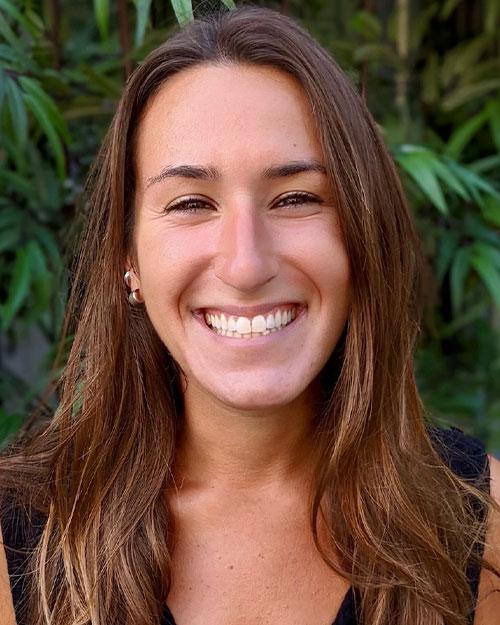Instructor Spotlight: Abbie Cohen

Tell us about your background and what inspired you to teach this course
This course combines my early career experiences and my current PhD research. That said, I’ve always been oriented towards teaching as I come from a long line of educators (I jokingly call it the family business). I was inspired to teach this course because I believe that my students have a lot to teach me. I have spent the last three years in doctoral seminars, conducting preliminary research, supporting professors as a research assistant, and reading everything I could get my hands on, and I have been eager to take everything I’ve learned and open it to other people. I know fresh eyes and different perspectives will allow me to see more of what I don’t know, and ask questions about and challenge some of what I think I do know. Tufts students are curious, critical, and engaged (I know, because I once was one, ha!) and I know they will help me see this work differently and support my learning, while at the same time, I hope, that I help introduce them to concepts in the world of education that often go understudied or unseen.
What gap do education non-profits fill/what role do they play in an educational landscape?
Education Non-profits are a growing area in public education and they play many different roles. They emerged, in part, because public schools did not meet the myriad of needs of their students. We have never fully and equitably funded public schools in the United States because we (mostly) utilize property taxes, which means that historically marginalized and lower socio-economic areas have less-resourced schools than higher-income suburbs. It’s an unfair reality that we’ve been stuck with for generations. Education non-profits are complicated and full of contradictions (just like public schools), but in many ways they emerged to “supplement” what happens in schools, and they have transformed into an entire (and growing) subset of the educational field. Now, education non-profits pop up all over the place and have come to fill some of the gaps that communities have called for ranging from mentorship, college access/opportunities, tutoring, sports, and art, among many other missions. However, sometimes the communities don’t call for them and they still show up.
What would you say to students who want to work in educational non-profits (or the non-profit space in general)? How can students grapple with the power dynamics in these spaces?
Part of the reason I wanted to teach this course is because I entered into the education non-profit sector wide-eyed and unaware. At my job, I was quickly shaken by my experiences because I was oblivious to the power dynamics and relationships that actually undergird this entire sector. My hope is that this course will peel back some of this world so that if students decide to enter the sector, they’ll enter with more tools and understanding to situate themselves and have more levers and language to pull from to create more progress, justice, and hopefully positive change. In every job, there are power dynamics at play, but the education non-profit sector, in particular, are ripe with power dynamics while remaining “mission-driven” which can cause some serious internal combustion if you aren’t keeping a keen eye out for the contradictions. That’s one reason why the sector has such a high turnover! My hope is that leaving this course, students will be more aware of the paradoxes and better position themselves in their new gigs.
What do you hope that students will take away from your course?
I think my biggest goal in any class—as either a student or teacher—is to ensure that everyone feels a sense of community. Rarely do we actually remember what we learn in a class. Instead, we recall how we felt. I hope students make some new friends, and at least one new teacher who they can call on in the future (that would be me)! On top of that, I am excited to engage in the content together and have students leave at the end of the semester with new ways of thinking, new questions, and perhaps a few light-bulb moments about education non-profits, philanthropy, public schools, democracy, and public goods that continue to show up outside of the classroom.
Abbie Cohen (A15) has worked as a teacher in Medellín, Colombia, as a non-profit administrator in Denver, Colorado, and as the community partnerships director at Harvard University’s Radcliffe Institute. In each of these different roles and disparate geographic locations, Abbie works to build bridges between people, organizations, and communities. A doctoral candidate in the Urban Schooling division at UCLA’s School of Education & Information Studies, Abbie’s research explores the complex relationships between philanthropy, education nonprofits, and urban public schools.